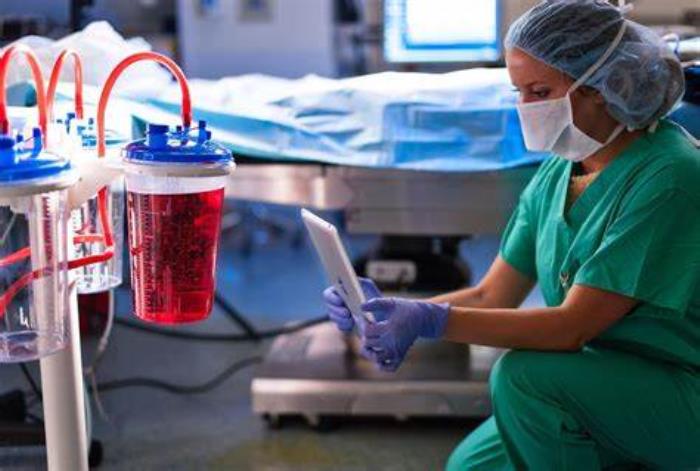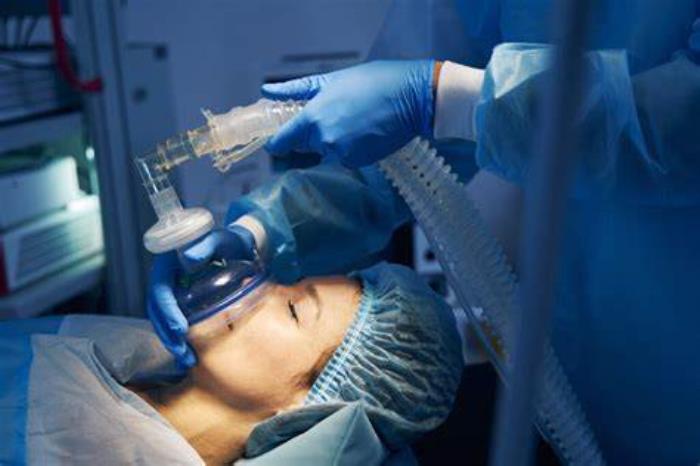Heart valve surgery is a significant procedure that comes with potential risks, despite its life-saving benefits. Understanding these risks allows patients to make informed decisions and take proactive measures for a smoother recovery. By being aware of possible complications, patients can work closely with their healthcare teams to minimize the likelihood of adverse outcomes and improve overall success rates.
Common Risks of Heart Valve Surgery
Heart valve surgery, like all major surgeries, carries risks that may affect the patient’s recovery and long-term health. Common risks include infection, bleeding, blood clots, arrhythmias, and potential issues with the replacement valve. These risks vary based on factors like patient health, the complexity of the surgery, and whether the procedure is minimally invasive or open-heart.
Infection Risk: Preventing Post-Surgical Infections
Infection is a notable risk following heart valve surgery, as the body is more vulnerable during the healing process. Healthcare teams take extensive precautions, such as administering antibiotics and maintaining strict sterile procedures, to minimize infection risk. Patients are encouraged to follow wound care instructions closely and watch for signs of infection, such as redness, fever, or unusual discharge.
Bleeding Complications: Managing Blood Loss During Surgery
Managing blood loss is essential during and after heart valve surgery. Surgeons take steps to minimize bleeding, but due to the complexity of heart surgery, some blood loss is unavoidable. Post-surgery, patients may be monitored in the ICU to quickly address any bleeding. Blood transfusions may also be used to stabilize the patient and support recovery.

Blood Clot Formation and the Risk of Stroke
Blood clots are a serious concern post-surgery, as they can lead to stroke if they travel to the brain. Patients may be prescribed anticoagulant medications to prevent clot formation, particularly if a mechanical valve is used. Close monitoring and adherence to prescribed medications are vital in reducing the risk of blood clots and ensuring a safe recovery.
Arrhythmias: Irregular Heartbeats Post-Surgery
Arrhythmias, or irregular heartbeats, are a common complication after heart valve surgery. These abnormal rhythms can arise as the heart adjusts to the new or repaired valve. Patients may receive medications to stabilize their heart rhythms, or in some cases, a temporary pacemaker might be needed. With proper care, arrhythmias often stabilize over time.
Valve Dysfunction: Potential for Prosthetic Valve Issues
While rare, issues with prosthetic valves, such as dysfunction or detachment, can occur. Mechanical or biological replacement valves may experience wear or malfunction, impacting heart function. Regular follow-ups are essential to monitor valve performance, and if necessary, further intervention may be required to maintain heart health.
Anesthesia-Related Risks: What Patients Should Know
Anesthesia is an essential part of heart valve surgery, but it carries some risks. For most patients, anesthesia is safe; however, reactions can vary based on individual health conditions, age, and the type of anesthesia used. Patients may experience issues such as nausea, confusion, or, in rare cases, more severe reactions. Discussing medical history and potential allergies with the anesthesia team before surgery is crucial for a safe procedure.

Respiratory Complications: Breathing Challenges After Surgery
Breathing difficulties are a possible complication after heart valve surgery, particularly for patients with preexisting respiratory conditions. Respiratory complications can include fluid buildup in the lungs, infections, or difficulty breathing due to anesthesia. To mitigate these risks, respiratory exercises and early mobilization are encouraged post-surgery, and close monitoring helps in the early detection of any issues.
Kidney Dysfunction: Monitoring Renal Health Post-Surgery
Kidney dysfunction can sometimes occur after heart valve surgery, especially in patients with preexisting kidney conditions or advanced age. The stress of surgery, along with changes in blood flow during the procedure, can impact kidney function. Regular monitoring of kidney health and staying hydrated can help detect and manage these complications early.
Memory Loss and Cognitive Effects After Heart Valve Surgery
Some patients report memory loss or cognitive issues after heart valve surgery, often referred to as "pumphead" in cases where a heart-lung machine is used. These symptoms, while usually temporary, can affect focus, memory, and processing speed. Discussing any cognitive changes with healthcare providers is essential, and many patients find improvement over time through cognitive exercises and support.
Risks of Reoperation: When Additional Surgeries Are Needed
Though rare, some patients may require reoperation if complications such as valve failure or infections occur. Factors influencing the need for a second surgery can include age, the type of valve replacement, and underlying health conditions. Reoperation carries increased risks, so monitoring heart health and following postoperative care instructions are key to avoiding it whenever possible.
The Impact of Age and Health Conditions on Surgical Risk
Age and preexisting health conditions, such as diabetes or chronic lung disease, can increase the risks associated with heart valve surgery. Older adults or those with complex medical histories may face higher chances of complications. Understanding these risks and discussing them with the medical team helps patients and their families make informed decisions about surgery and postoperative care.
Managing Anticoagulation Therapy: Balancing Benefits and Risks
Anticoagulation therapy is often prescribed after heart valve surgery to prevent blood clots, particularly if a mechanical valve is implanted. However, this therapy requires careful monitoring to avoid issues such as bleeding or clotting. Patients are advised to follow strict guidelines on medication dosages and regular blood tests to ensure proper management of anticoagulation therapy.
The Role of Lifestyle in Reducing Complications
Maintaining a heart-healthy lifestyle post-surgery can play a significant role in reducing complications. Adopting a balanced diet, regular exercise, and avoiding smoking or excessive alcohol use can improve overall health and help ensure a smoother recovery. Patients who embrace these changes often experience better long-term outcomes.
Importance of Postoperative Monitoring for Early Detection
Regular postoperative check-ups are crucial for detecting complications early. Monitoring heart rate, blood pressure, and incision sites helps healthcare providers identify any signs of infection, abnormal heart rhythms, or other issues. Patients should also be vigilant and report any unusual symptoms to their healthcare team.
Addressing Emotional and Psychological Challenges Post-Surgery
The emotional impact of heart valve surgery can be significant, with some patients experiencing anxiety, depression, or fear of future health issues. Emotional support, therapy, and engaging in support groups can provide relief and encouragement throughout the recovery process. Addressing these psychological challenges is important for a comprehensive recovery.
Long-Term Risks: What Patients Should Be Aware Of
Long-term risks after heart valve surgery can include blood clots, infections, or valve degeneration, particularly with bioprosthetic valves. Patients should remain proactive about their health, attend follow-up appointments, and maintain a heart-healthy lifestyle to mitigate these risks. Recognizing and managing these potential complications is essential for sustaining heart health.
Patient Stories: Overcoming Challenges in Recovery
Hearing from patients who have undergone heart valve surgery can be encouraging. Many patients overcome initial challenges, adapt to lifestyle changes, and find strength through family, friends, and support groups. These stories highlight resilience and provide motivation for others facing similar journeys.
The Role of Medications in Managing Heart Valve Symptoms
Discover the importance of medications in managing heart valve symptoms. This section explains how various medications can alleviate symptoms associated with heart valve disorders, improve heart function, and enhance the quality of life for patients, emphasizing the need for proper medication management.
Advances in Imaging Technology for Heart Valve Assessment
Explore the latest advances in imaging technology for heart valve assessment. This section highlights innovative techniques such as echocardiography, MRI, and CT scans that enhance the diagnosis and evaluation of heart valve conditions, leading to more accurate treatment planning.
Conclusion: Weighing the Risks and Benefits of Heart Valve Surgery
Heart valve surgery offers life-saving benefits, but understanding the associated risks is essential. By discussing potential complications, following postoperative care instructions, and embracing a heart-healthy lifestyle, patients can make informed decisions and enhance their recovery. Staying aware and proactive helps ensure the best possible outcomes from heart valve surgery.
Best Heart Valve Replacement Surgeons in India
The Best Heart Valve Replacement Surgeons in India are highly skilled in complex valve procedures, offering personalized care to help patients achieve successful outcomes and enhanced heart health.
FAQ:
What are the main risks of heart valve surgery?
Common risks include infection, bleeding, blood clots, and potential reactions to anesthesia. In some cases, complications may affect organs such as the lungs, kidneys, or brain.
How common are infections after heart valve surgery?
Infections are relatively rare, but they can occur, particularly at the surgical site. Proper wound care and monitoring can help prevent infection.
Can heart valve surgery lead to memory loss or cognitive issues?
Some patients experience temporary cognitive effects, such as memory loss or difficulty focusing, often due to anesthesia or use of the heart-lung machine. Most patients improve over time.
What is the likelihood of needing a second surgery?
Reoperation may be needed if complications arise or if the valve deteriorates over time. Following care instructions and regular check-ups help minimize this risk.
How can I minimize the risks associated with heart valve surgery?
Staying healthy before surgery, following postoperative guidelines, managing medications properly, and attending all follow-up appointments are key to reducing risks.